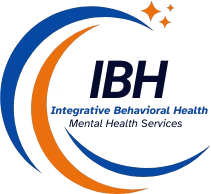Are you considering therapy but aren’t sure where to start? With so many types of therapy available, finding the right fit can feel overwhelming. Understanding the differences between popular therapy approaches—such as cognitive-behavioral therapy (CBT), dialectical behavior therapy (DBT), and family therapy—can help you choose a path that best aligns with your needs and goals. Here, we break down each method, exploring what you can expect, who can benefit the most, and how these therapies can support mental wellness.

Cognitive-Behavioral Therapy (CBT)
What Is CBT?
Cognitive-behavioral therapy (CBT) is a widely used, evidence-based approach that focuses on identifying and changing negative thought patterns and behaviors. CBT helps individuals recognize how their thoughts influence their emotions and actions, providing tools to reframe these patterns and build healthier responses.
What to Expect in CBT
CBT sessions are often structured, goal-oriented, and typically last for a set number of sessions. Therapists work collaboratively with clients, setting goals and teaching skills that empower clients to address their challenges outside of sessions. Techniques include identifying and challenging negative thoughts, practicing relaxation strategies, and developing problem-solving skills.
Who Benefits from CBT?
CBT is effective for treating a variety of mental health conditions, including:
- Anxiety disorders (such as generalized anxiety, panic disorder, and social anxiety)
- Depression
- Post-traumatic stress disorder (PTSD)
- Phobias
- Eating disorders
Because of its practical, solution-focused approach, CBT is an excellent choice for those looking to address specific problems or reduce symptoms in a structured manner. Research supports its efficacy, making it one of the most well-regarded therapeutic approaches in mental health.

Dialectical Behavior Therapy (DBT)
What Is DBT?
Originally developed to treat borderline personality disorder, dialectical behavior therapy (DBT) has since proven effective for a wide range of conditions. DBT combines elements of CBT with mindfulness techniques, emphasizing acceptance and change. A central tenet of DBT is the balance between accepting oneself and making necessary changes to improve one’s quality of life.
What to Expect in DBT
DBT often includes a combination of individual therapy, group skills training, and phone coaching. The therapy focuses on four main areas:
- Mindfulness: Learning to live in the moment
- Distress Tolerance: Managing crisis situations without resorting to harmful behaviors
- Emotion Regulation: Recognizing and adjusting intense emotions
- Interpersonal Effectiveness: Building and maintaining healthy relationships
DBT therapists provide tools and guidance for navigating challenging emotional situations, supporting clients in handling distress without impulsive reactions.
Who Benefits from DBT?
DBT is especially beneficial for those experiencing:
- Borderline personality disorder
- Chronic suicidal thoughts or self-harm behaviors
- Emotional regulation challenges
- Substance use disorders
For those struggling with intense emotions or interpersonal conflicts, DBT offers a compassionate and structured framework for self-acceptance and growth. Many people also find that DBT’s mindfulness and emotional regulation skills are valuable tools for everyday life.

Family Therapy
What Is Family Therapy?
Family therapy is a type of counseling that helps family members improve communication, resolve conflicts, and strengthen their relationships. It views the family as a system, recognizing that individual behavior often impacts the entire family dynamic. Family therapists work with families to identify problematic patterns and develop strategies for healthier interactions.
What to Expect in Family Therapy
Family therapy typically involves sessions with multiple family members, though individual sessions may also be included as needed. Therapists encourage open communication, helping each person share their thoughts and feelings in a supportive environment. Techniques may include role-playing, communication exercises, and problem-solving strategies to foster understanding and cooperation.
Who Benefits from Family Therapy?
Family therapy can benefit families facing a range of challenges, including:
- Parent-child conflicts
- Divorce or separation
- Loss of a loved one
- Substance use
- Mental health concerns impacting the family unit
This approach is particularly helpful when one family member is struggling with a condition like addiction, depression, or anxiety. Family therapy can help members understand each other’s perspectives, create supportive dynamics, and learn ways to support their loved one through recovery.
Choosing the Right Type of Therapy
Selecting a therapy approach depends on several factors, including your specific concerns, personal preferences, and therapy goals. If you’re dealing with persistent negative thoughts or behaviors, CBT may be a good fit. Those facing intense emotions and interpersonal challenges may benefit from the skills provided by DBT. And if your focus is on improving family dynamics or addressing relational conflicts, family therapy can offer a supportive and collective approach.
At Integrated Behavioral Health, we are here to help you every step of the way, providing compassionate, evidence-based care tailored to meet your needs. Whether you’re seeking individual therapy, family support, or tools to navigate emotional challenges, our team of experienced therapists is here to guide you on your path to mental wellness.
Ready to Take the Next Step?
Choosing therapy is a powerful step toward healing and self-growth. No matter where you are in your journey, know that support is available. Contact us to learn more about our therapy options and find the right approach for you.
Sources
- American Psychological Association. (2023). Cognitive Behavioral Therapy (CBT). Retrieved from apa.org.
- National Alliance on Mental Illness. (2023). Dialectical Behavior Therapy (DBT). Retrieved from nami.org.
- Mayo Clinic Staff. (2023). Family Therapy. Retrieved from mayoclinic.org.
